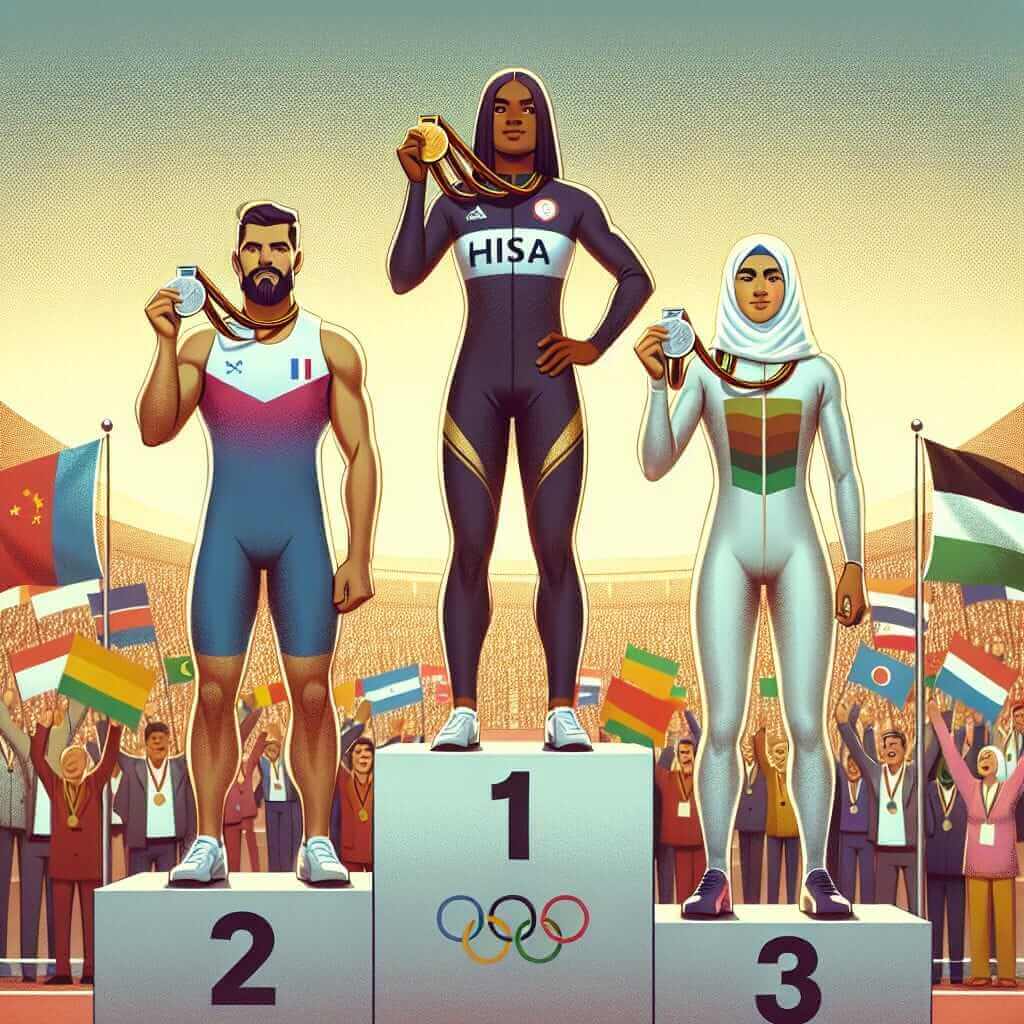As an IELTS teacher, I often find students struggling to find the right words to express themselves, especially when it comes to specialized vocabulary. One area that can be surprisingly tricky is discussing “medals” – those symbols of achievement we all recognize. While “gold,” “silver,” and “bronze” are commonly known, using a variety of terms can significantly enhance your vocabulary score in the IELTS exam.
Table Of Contents
Understanding the Importance of Vocabulary in IELTS
A rich vocabulary is crucial for achieving a high band score in the IELTS exam. It demonstrates your language proficiency and allows you to express yourself with precision and nuance. In the writing and speaking sections, using a range of synonyms for common words like “medal” can make your language more sophisticated and engaging.
Exploring Synonyms for “Medal”
Let’s delve into some specific vocabulary related to “medals”:
General Terms:
-
Award: This is a broad term that encompasses any kind of recognition for achievement, including medals.
- Example: He received a prestigious award for his scientific discovery.
-
Decoration: This term often refers to medals given for military or civil service.
- Example: The general was adorned with numerous decorations for his bravery.
-
Honor: While not a physical object, “honor” represents the recognition and respect that comes with receiving a medal.
- Example: It was a great honor to represent my country at the Olympics.
Specific Types of Medals:
-
Gold Medal: The top prize, representing first place.
- Example: She trained tirelessly and finally achieved her dream of winning an Olympic gold medal.
-
Silver Medal: Awarded for second place.
- Example: He was proud to take home the silver medal in his first international competition.
-
Bronze Medal: Given to the third-place finisher.
- Example: Even though she aimed for gold, winning the bronze medal was a significant accomplishment.
Figurative Language:
-
To medal: This verb means to win a medal in a competition.
- Example: She hopes to medal in at least two events at the upcoming championship.
-
Medal contender/hopeful: A person or team considered likely to win a medal.
- Example: The young athlete is considered a strong medal contender for the next Olympics.

Using Medal Vocabulary in the IELTS Exam
Now, let’s see how you can utilize this vocabulary effectively in different sections of the IELTS exam:
Writing Task 1 (Describing a Graph or Chart):
Instead of repeatedly using the word “medal,” you can say:
- “The graph illustrates the number of gold, silver, and bronze medals won by different countries.”
- “The United States secured the highest number of awards, followed by China.”
Writing Task 2 (Essay):
You can use synonyms to add variety and sophistication to your writing:
- “Participating in sports can instill valuable life lessons, even if one does not stand on the podium to receive a medal.”
- “The pursuit of honors and accolades should not overshadow the importance of sportsmanship and fair play.”
Speaking Test:
Using a range of vocabulary will impress the examiner:
- “I’m a huge sports fan and always get excited about the Olympics. Watching athletes achieve their dreams of winning medals is truly inspiring.”
- “My grandfather was a war hero and received several decorations for his service.”
Tips for Success:
- Practice makes perfect: Incorporate these new words and phrases into your writing and speaking practice.
- Context is key: Ensure you understand the appropriate context for each synonym to avoid using words incorrectly.
- Read widely: Expose yourself to diverse English texts to expand your vocabulary organically.
Conclusion
By mastering a wider range of vocabulary related to “medals,” you can express yourself more effectively and confidently in the IELTS exam. Remember, using synonyms appropriately demonstrates your command of the English language and can significantly enhance your overall score. Good luck!